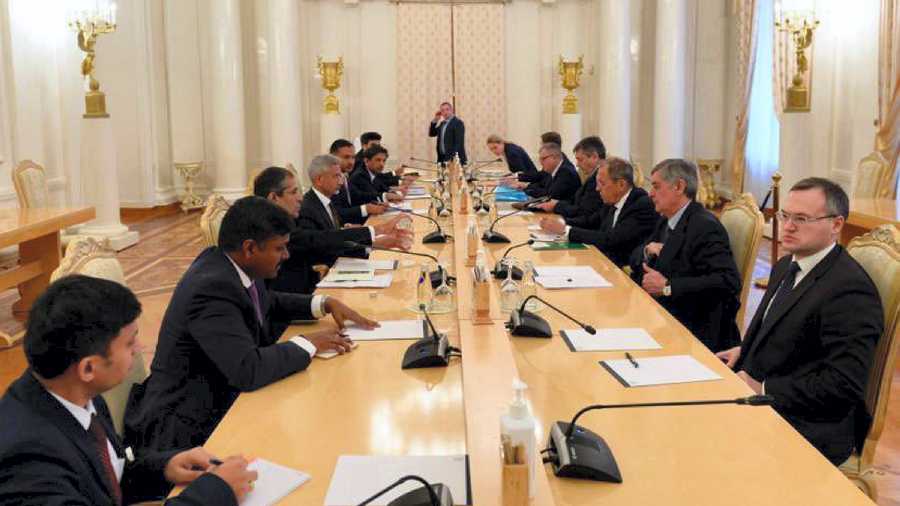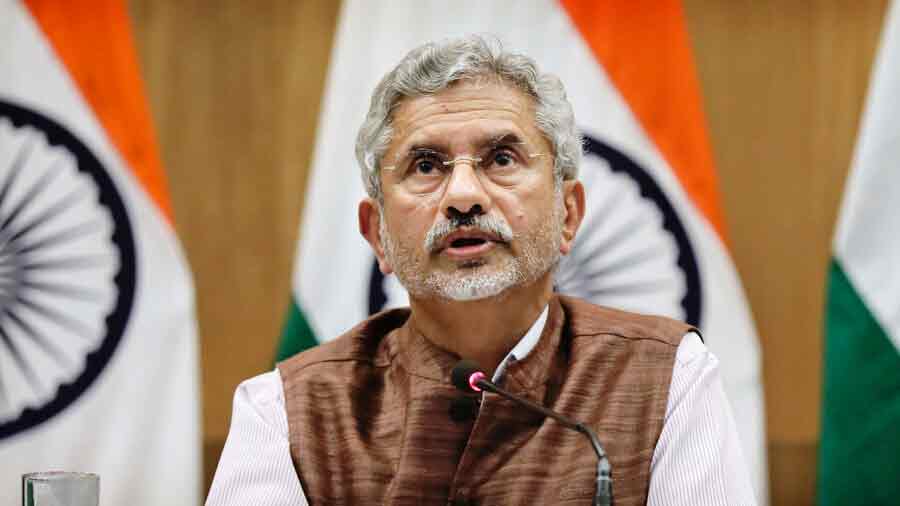After holding wide-ranging talks with his Russian counterpart Sergey Lavrov in Moscow, External Affairs Minister S Jaishankar on Tuesday clearly indicated that India will continue to import crude oil from Russia notwithstanding growing disquiet over it by Western powers.
At a joint media briefing with Lavrov, Jaishankar said it is the "fundamental obligation" of New Delhi to ensure that Indian consumers have the best possible access to the "most advantageous" terms in international crude markets.
Russia has become India's top oil supplier in October, surpassing traditional sellers Saudi Arabia and Iraq, according to data from energy cargo tracker Vortexa.
"As regards the oil supply issue, first of all, there is stress on the energy markets. This is a stress which has been created by a combination of factors," Jaishankar said.
"But as today the world's third-largest consumer of oil and gas, a consumer where the levels of income are not very high, it is our fundamental obligation to ensure that the Indian consumer has the best possible access on the most advantageous terms to international markets," he said.
The external affairs minister was replying to a question on Western pressure on India over its import of crude oil from Russia.
"In that respect, quite honestly, we have seen that the India-Russia relationship has worked to our advantage. So if it works to my advantage I would like to keep that going," he said.
India's appetite for Russian oil swelled ever since it started trading on discount as the West shunned it to punish Moscow for its invasion of Ukraine.
The external affairs minister also reaffirmed the resolve by India and Russia to expand overall economic engagement.
"The fact that I am here today with a delegation to review our cooperation, to see how we can take it forward, to create a long-term sustainable basis, I think, says most of all," he said.
"For us, Russia has been a steady and time-tested partner, and as I said, any objective evaluation of our relationship over many decades would confirm that it has actually served both our countries very, very well," he said.
"So if it has served my country very, very well for many decades, I think you can see the obvious interest and commitment I would have in keeping that relationship strong and steady," he added.
The external affairs minister also noted that India and Russia have been focusing on ways to expand bilateral trade and introduce more factors of "long-term stability" and growth in the last few years.
"Some of these discussions are now yielding results, accelerated by the stresses that the global economy is currently experiencing, including as a result of the Ukraine conflict," he said.
"Minister Lavrov and I have noted the significant growth in our bilateral trade this year and focused on how to make it more sustainable. We are naturally concerned at the trade imbalance and I have raised with the Russian side how to address impediments that stand in the way of greater Indian exports.," he said.
Jaishankar said the energy and fertilizer cooperation between the two sides has been strengthening and achievements of the last few years have become a foundation to do more.
"We discussed ways to expand and diversify our cooperation, moving beyond traditional areas. Promotion of inter-regional cooperation has been a key priority for us, particularly with the Russian Far East," he said.
"We also discussed enhancing connectivity, including through the International North-South Transport Corridor as well as the Chennai-Vladivostok Eastern Maritime Corridor," he added.











